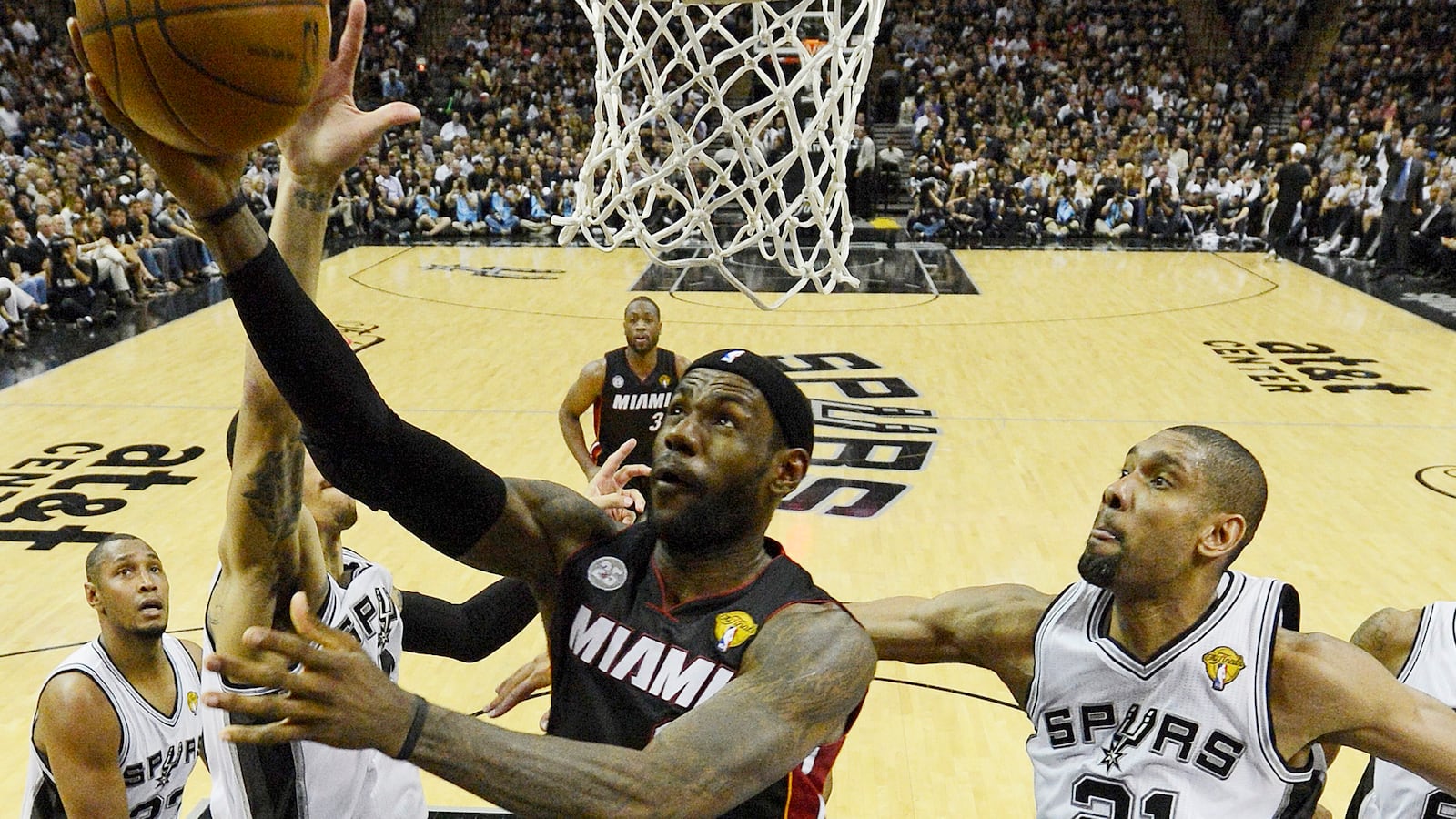In the midst of highly entertaining championship finals in the NBA and NHL, the rules dictate that eventually one group of fans in each sport will end up severely disappointed. They’ll have ridden the highs and lows of the regular season, cheered on their team to the brink of the ultimate goal, only to wind up devastated. Then they will want to do it all over again next season.

It’s a feeling writer Eric Simons knows too well. Simons is a contributor to NPR’s RadioLab and author of Darwin Slept Here: Discovery, Adventure, and Swimming Iguanas in Charles Darwin’s South America, in which he retraced the great naturalist’s footsteps in South America and found that the young Darwin loved an exciting adventure. Simons is also a long-suffering San Jose Sharks hockey fan and University of California, Berkeley, football supporter, and after yet another early postseason exit for one of his teams, he wondered what it is exactly—be it psychological, chemical, or biological—that made him and other sports fans so frenzied about a team and absolutely heartbroken when it annually underperformed and flamed out. The Secret Lives of Sports Fans: The Science of Sports Obsession is the result, an exposé into the science of fandom.
“Everybody looks at it like it’s so irrational,” Simons tells me. Sports fans like him get completely wrapped up in what non-sports-centric individuals deem a total waste of time. “I think that the point is it’s not irrational. It’s fun, and it’s meaningful, and as one psychologist put it, ‘Well, it’s not the worst thing you could be doing with your time.’”
It’s not irrational because the brain responds to sports in powerful ways. Testosterone is an obvious starting point. Research has shown that an increase in testosterone production occurs within people and animals at the start of competition. Other studies revealed that those playing a sport also saw a change in their testosterone levels depending on the outcome—more if they won, less if they lost. In 1994, Paul Bernhardt, then a student at Georgia State University, set about testing whether testosterone levels also changed among fans viewing the game on TV. Bernhardt took samples of saliva, which can show testosterone level, from the devotees on opposing sides of the World Cup final between Brazil and Italy. Participants would spit in a test tube before the start of the match, immediately after, and the next morning. The study, repeated in 2008 by a Duke University post-doc study on winning and losing voters in the U.S. election and then again in 2010 by Dutch and Spanish researchers for the World Cup final between Spain and Holland, showed that fans of the winning side indeed had higher testosterone levels. Although Simons notes that other studies have demonstrated that testosterone is affected by factors such as stress, and many scientists still debate what any of the results actually prove due to some inconsistency, there does seem to be a link between testosterone levels in winners and losers.

But winning championships is not the norm, and with repeated disappointment among some fan groups, why do we keep coming back? Perhaps the answer lies in the complicated chemical dopamine.
Dopamine is the feel-good substance that the brain’s reward system doles out, and it has also been linked to learning and motor skills. The field of study known as “social defeat” is focused on research on stress, anxiety, and depression. Researchers have been able to replicate the traits that characterize depression by repeatedly exposing rats to social bullying by acquainting them with bigger, more aggressive, and territorial associates. But when Tufts psychology professor Klaus Miczek wanted to study how being bullied affected dopamine production, the result was the exact opposite of what he expected. He had thought that dopamine production among the bullied rats would be diminished, but in fact it soared, with the more defeated the rat, the larger the increase.
Perhaps we are gluttons for punishment, but in reality we do not yet know why dopamine levels soar after a defeat. Regardless of the reason, what this does indicate is that, win or lose, the aftereffect is the same in our brain, if not actually even better with a loss. Fans receive a positive chemical boost either way by game’s end.

Dopamine levels also increase from the use of extremely addictive drugs. Simons, then, wonders if we can become addicted to watching sports?
True addicts, as defined by modern neuroscientists, are unable to maintain self-control. Simons believes that while extreme habit and borderline compulsion are often found among the most zealous fans, most of these people do exhibit restraint. “The science of addiction is the science of people who don’t get to make a choice,” Simons writes. “It’s possible to imagine sports fans who become so attached to the team they’re willing to forsake work, family, or hygiene for their passion. That’s not really a level that most sports fans ever reach. Drugs wreck lives—to an extent the millions of sports fans who describe their passion as addictive don’t really mean.”
Fans of the Miami Heat or the San Antonio Spurs, the Chicago Blackhawks or the Boston Bruins, will ache from sheer torment once their team loses in yet another championship series. If you’re a supporter of any other NBA or NHL team, you’ve already been heartbroken. Only one team stands in the end, and that’s not very good odds at all. Simons might understand the intense feelings behind sports fandom a lot better, but he says that it doesn’t make him feel any better after a loss. “But it does make me more tolerant of my own kind of mood swings, like, well, this will pass like it always does,” he says. “There’s always next year.”






